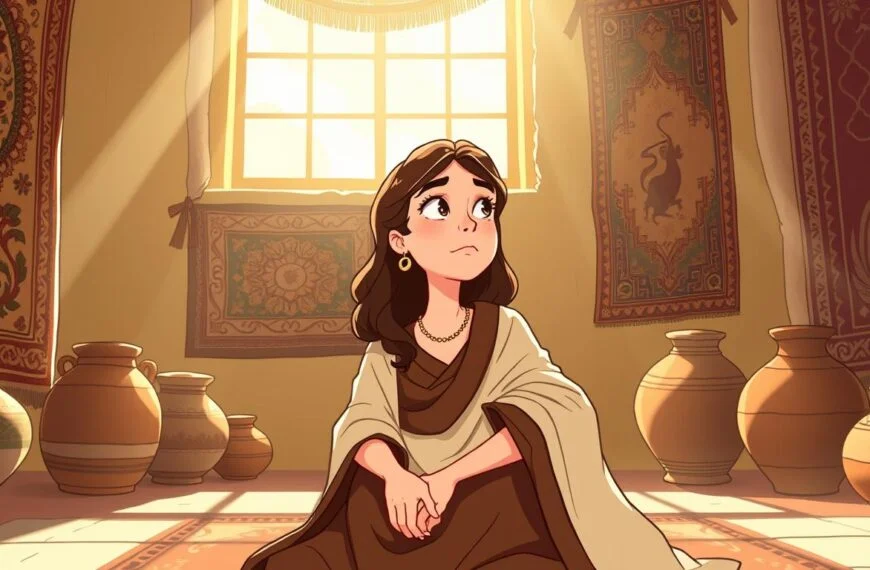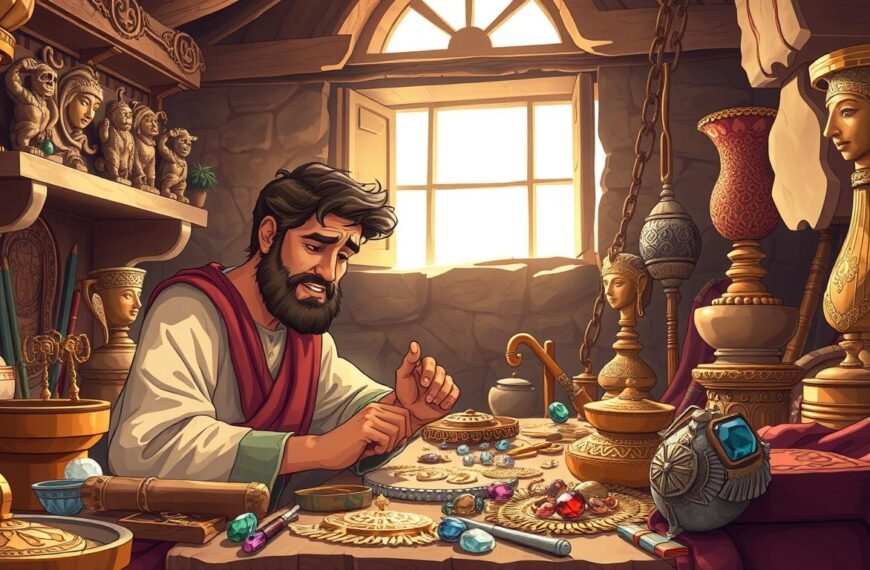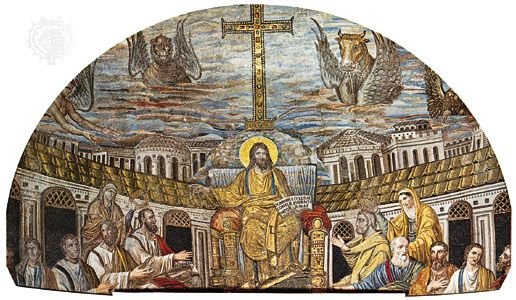Table of Contents
The biblical patriarchs – Abraham, Isaac, Jacob, Joseph, and Moses – are some of the most well-known and revered figures in religious history. Their stories have endured for thousands of years and continue to inspire people around the world to this day.
In this section, we will explore the lives of these patriarchs and their enduring legacies. We will dive deep into their stories, examining their struggles, triumphs, and unwavering faith in God.
Key Takeaways:
- The biblical patriarchs played important roles in the history of Israel and in religious teachings.
- Abraham was known as the “Father of Many Nations” and embarked on a journey of faith.
- Isaac and Jacob were integral in continuing the covenant with God.
- Joseph overcame betrayal to become a powerful ruler in Egypt.
- Moses was a central figure in the biblical narrative and led the Israelites out of Egypt during the Exodus.
Overview of Biblical Patriarchs
The Biblical patriarchs are central figures in the history of Israel, playing vital roles in religious teachings and shaping the trajectory of faith. Through their stories, we gain insights into the enduring legacies of these revered figures, and their significance in the Judeo-Christian tradition.
Abraham, Isaac, Jacob, Joseph, and Moses are among the most notable patriarchs, each with their unique stories and contributions. Their lives and experiences are rooted in both history and mythology, providing meaningful lessons on faith, perseverance, and redemption for believers and non-believers alike.
These patriarchs were not only important in the context of religion but also history, as their stories unfold against the backdrop of ancient empires, political turmoil, and social upheavals. Understanding their roles in the broader historical context helps us appreciate their significance and the lessons that their lives offer.
Abraham – The Father of Many Nations
Abraham is a patriarch in the Bible who is considered the “Father of Many Nations.” He was born Abram in the city of Ur in modern-day Iraq, and he was called by God to leave his home and journey to a new land that God promised to give him and his descendants. Abraham obeyed God’s call and moved his family to the land of Canaan.
God made many promises to Abraham, including that he would have many descendants and that all nations would be blessed through him. Abraham’s faith and trust in God were tested many times, including when he was asked to sacrifice his son Isaac. However, Abraham remained faithful, and God proved to be faithful to him in return.
Abraham’s legacy continues to inspire people of faith to this day. His unwavering trust in God and his willingness to follow Him, even when it was difficult, serve as an example of what it means to have faith. Through Abraham, God established a covenant with His people that would continue throughout the generations.
Isaac and Jacob – The Continuation of the Covenant
Isaac, the son of Abraham and Sarah, was born through a miraculous intervention of God. His life was marked by faithfulness and obedience to God, even in the face of great challenges. Isaac was also the father of Jacob, who became one of the most prominent patriarchs in biblical history.
Jacob, also known as Israel, had a complex life, marked by betrayal, deception, and ultimately, transformation. He had twelve sons, who became the heads of the twelve tribes of Israel. Despite his flaws, Jacob remained faithful to God and played a crucial role in the continuation of the covenant.
The story of Isaac and Jacob showcases the enduring power of faith and the importance of obedience and trust in God. Their lives serve as an inspiration to believers to remain steadfast in their commitment to God and his promises.
Joseph – From Betrayal to Redemption
Joseph was the eleventh son of Jacob and the firstborn of his beloved wife, Rachel. Joseph’s story is one of betrayal by his brothers, who sold him into slavery in Egypt out of jealousy of their father’s favoritism towards Joseph. Joseph faced many challenges in Egypt, including being falsely accused of a crime and imprisoned. However, he never lost faith and continued to trust in God’s plan for his life.
Eventually, Joseph’s interpretation of Pharaoh’s dreams led to him becoming the second-most powerful ruler in Egypt. He was responsible for preparing the country for a seven-year famine that he had predicted.
“And Joseph said unto Pharaoh, The dream of Pharaoh is one: God hath shewed Pharaoh what he is about to do. The seven good kine are seven years; and the seven good ears are seven years: the dream is one. And the seven lean and ill favoured kine that came up after them are seven years; and the seven empty ears blasted with the east wind shall be seven years of famine.”
Joseph’s success allowed him to forgive his brothers who had betrayed him, and he was eventually reconciled with them.
The story of Joseph teaches valuable lessons about the importance of forgiveness, the power of faith, and the redemption that can come from perseverance and trust in God’s plan.
Moses – The Leader of the Exodus
Moses is a central figure in the biblical narrative and a revered prophet in Judaism, Christianity, and Islam. He was born to Hebrew parents but was adopted by Pharaoh’s daughter and grew up in the Egyptian royal court. According to the Bible, he was chosen by God to lead the Israelites out of slavery in Egypt and into the Promised Land.
Moses is best known for his role in the Exodus, one of the most significant events in Jewish history. After God sent ten plagues to Egypt, Moses led the Israelites out of slavery and parted the Red Sea to allow them to escape Pharaoh’s army. He then received the Ten Commandments from God on Mount Sinai, which became the basis of Jewish law and morality.
Despite facing numerous challenges and setbacks, including rebellions by the Israelites, Moses remained steadfast in his faith and commitment to God. He was a brave and compassionate leader who advocated for justice and equality, even when it meant confronting the powerful rulers of Egypt.
Moses’ enduring legacy is evident in the impact he has had on religious teachings and cultural traditions. His story has inspired countless works of art, literature, and music, and his leadership qualities and teachings continue to influence leaders and individuals around the world.
FAQ
What is the significance of exploring the lives of Biblical patriarchs?
Exploring the lives of Biblical patriarchs helps us understand their enduring legacies and the impact they had on faith and history.
What will be covered in the overview of Biblical patriarchs?
The overview of Biblical patriarchs will discuss their importance, their roles in the history of Israel, and their significance in religious teachings.
Who is Abraham and why is he called the “Father of Many Nations”?
Abraham is a prominent patriarch who is referred to as the “Father of Many Nations” due to his significance in the establishment of the Israelite people and his faith journey.
What role did Isaac and Jacob play in the continuation of the covenant?
Isaac and Jacob, the son and grandson of Abraham, played vital roles in continuing the covenant with God. Their stories highlight the fulfillment of the promises made to Abraham.
What is the story of Joseph and its significance?
Joseph, one of the sons of Jacob, had a remarkable journey from betrayal to redemption. His story teaches valuable lessons about forgiveness, resilience, and the providence of God.
Why is Moses considered a central figure in the biblical narrative?
Though not strictly a patriarch, Moses is a significant figure in the Bible. His leadership during the Exodus and the delivery of the Ten Commandments make him a pivotal character in the story of faith and freedom.

Rockin’ the faith, one verse at a time!
Growing up, the Bible’s stories deeply impacted me. Now, with over 15 years of preaching experience, I blend timeless teachings with modern technology, making them relevant for today’s world.
Bible Hub Verse is my platform to share historical insights and thought-provoking articles, exploring both familiar and uncommon Christian topics. My passion is building a welcoming online space for everyone to learn, grow in their faith, and discover the Bible’s enduring message.
Join the journey!
God bless you.






